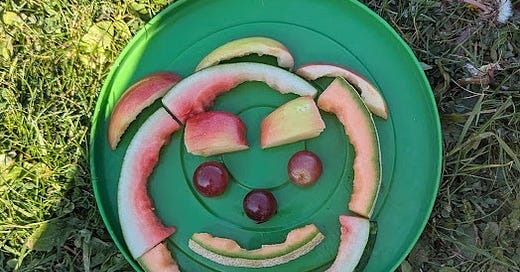I haven’t picked up my pen for journaling, sat down with my laptop to write, cracked a book to research a new story idea, or reviewed my memoir manuscript in nearly two months. It’s shocking to look back and consider where all that time went, how easily it gets eaten up by parenting, marriage, grief, distraction, or the sheer weight of existing in the world today. Every day presented a perfectly good reason not to write; how can you craft beautiful prose when the ingredients of life look so rotten, or be articulate when you are having trouble making sense of a world at war?
When I began university I planned to enter the creative writing program, but I was late to register and all the classes were full. I sat in on one writing class I was waitlisted for, and the professor said we might as well give up now because it was nearly impossible to make a living from writing. He emphasized, a little louder for the students standing at the back, that most of us would fail.
So instead of creative writing, I went on to complete my degree in psychology. It seemed the next logical choice: I wanted to write to understand why people behave the way we do. If the job of a writer is to investigate the complexity of the human experience, then a degree in psychology would complement that pursuit.
In hindsight, that detour wasn’t wasted. It shaped my understanding of what it means to write, especially when it feels so impossible to actualy write. To me, being a writer means recycling the daily accumulation of garbage into something that makes people feel heard and seen. Being a writer is to process the raw human experience—joy, heartbreak, hope, regret, imagination, fear, love—and translate that into language. Translating the human experience into art takes patience and practice.
And lately, I’ve not had the patience to write. But I’ve found other ways to keep track of myself. When I’ve faced intensely emotional periods in the past, I turned to note-taking. During the pandemic, I diligently kept a log of things that happened each day. Simple bullet points, the day’s happenings recorded in five minutes or less. There was no nuance or depth, just a simple accounting of what happened.
When I was diagnosed with cancer, I again took copious notes but it was more an accounting of how I was trying to heal: supplements I took, things I researched about my cancer, how many minutes I meditated or practiced yoga, which of my doctors I met with that day. Some feeling emerged in those diaries, but they were single-word acknowledgements that I couldn’t truly explore in the moment. I certainly couldn’t translate any of this into creative work.
In my personal seasons of stress, confusion, or apathy, my capacity for creative translation—that task of taking the raw experience and spinning into a common language—disappears. Whether it’s writing or quilting or other artistic ventures, it all feels for naught. Until suddenly it’s not.
The surge into creative expression always returns, and when it does, I am glad to revisit those rote details, the simple notes and daily accounting. The raw ingredients eventually come together to form some bigger picture, and time is the pot in which they brew.
In moments like these, when I begin to chastise myself for not writing more, I remind myself that my own creativity moves in seasons. So while I may often lose the plot of what it means to be a writer, I’m starting to see that there are many elements at play, and they carry their own particular rhythms. Winter is for annual reflection, early bedtimes, and quiet mornings. Spring carries the potential of the year ahead, and the launch of big ideas. Summer is the season of churning in bright activity, when ideas are sketched out in my mind. Fall is my most efficient season, when the bulk of the “real writing” is complete.
I know there are some teachers out there who say that in order to be a writer, you have to write every day. Maybe they’re right, but also: fuck that noise. You can write a thousand words a day, but if the philosophical foundation to your work doesn’t have time to percolate, what’s it worth?
So while that university professor nailed the warning—I am the statistic, I have not made a living from writing—I still keep turning back from that path of giving up. For me, being a writer means I am also a diarist, an essayist, a researcher, a philosopher, and occasionally, a slacker. Being a writer is about laying bare what it means to experience the world by examining the psychology of the self. And you can never really give up on that, can you?





